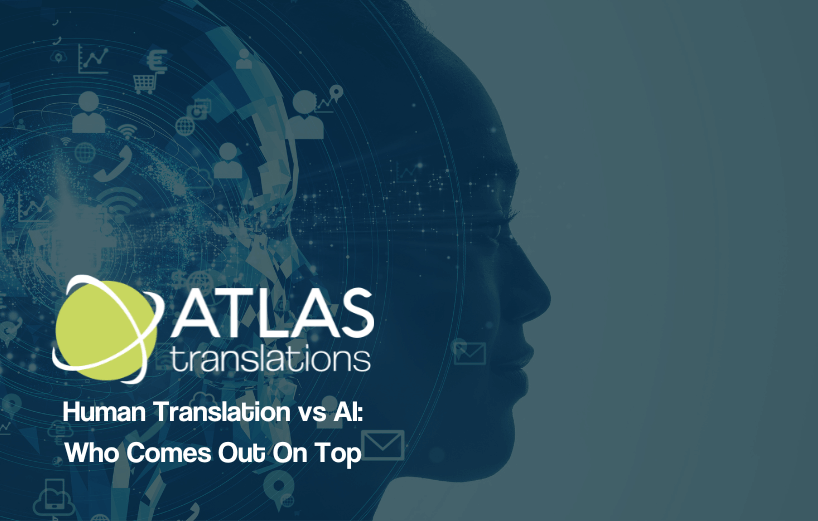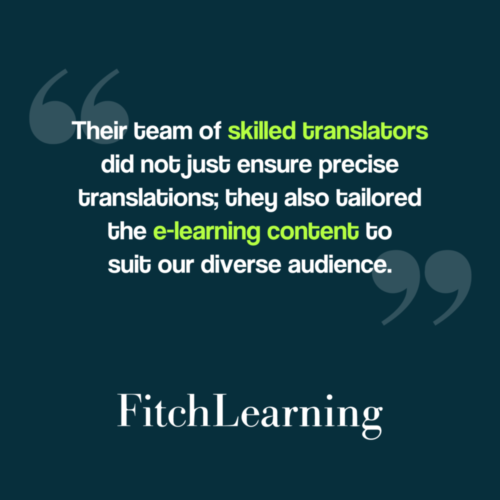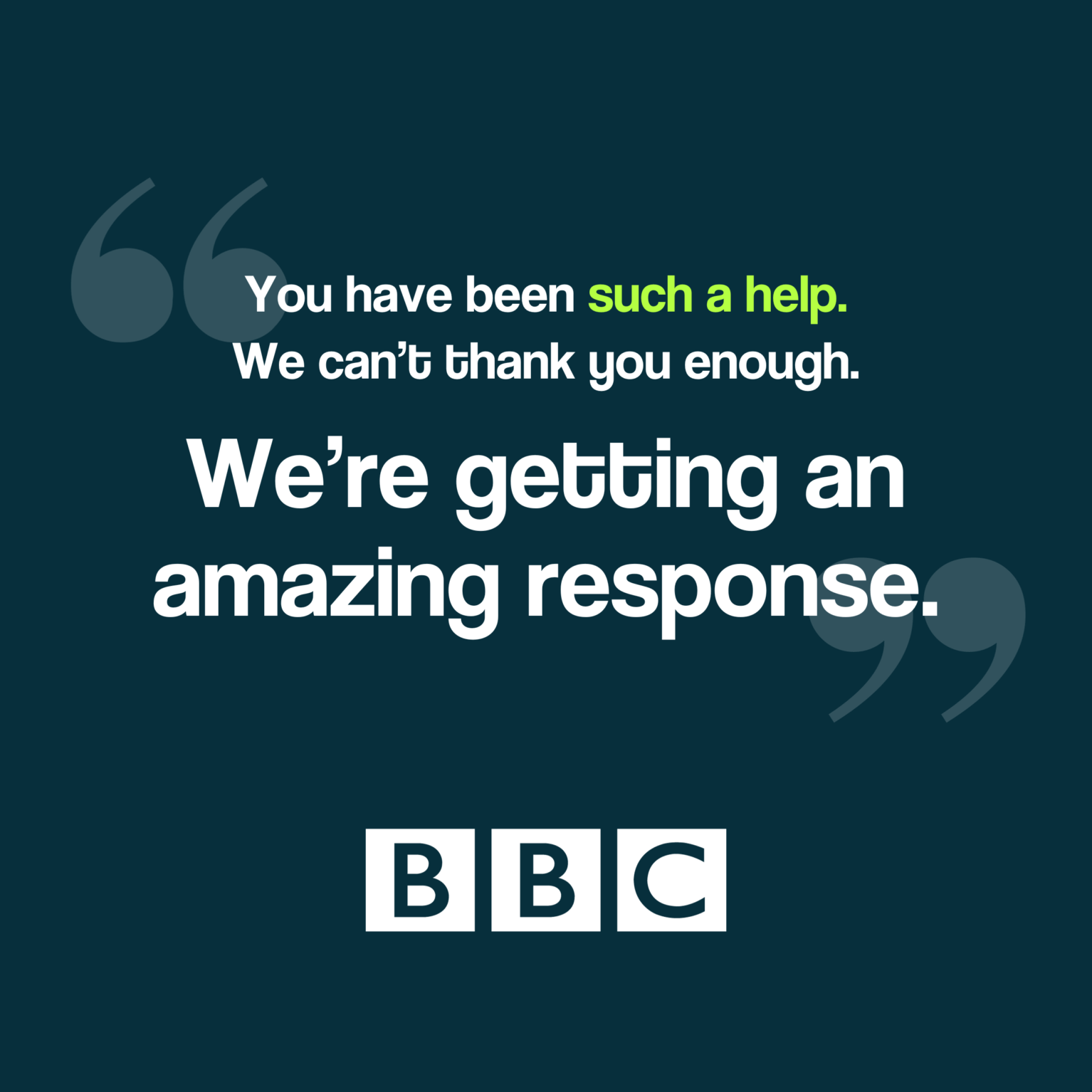Human Translation vs AI: Who Comes Out on Top?

Human Mastery or AI Sophistication…
From the tech world to computer-generated art, artificial intelligence (AI) has become a hot ticket item. Like it or not, it’s an increasingly prevalent part of our lives.
Elon Musk has even predicted that AI will make all paid jobs redundant, and the translation industry is often touted as one for the chopping block.
Despite Musk’s ominous warning, the reality of having a purely AI-driven translation service is neither straightforward nor likely. Accurate translation involves considerably more than getting words down on a page or screen and hitting the submit button.
Here’s more on why professional human translation is always the right choice when it counts.

AI Pros vs. Cons
While AI translation is still a developing field, admittedly, it has made significant strides. Driven by apps such as Google Translate and ChatGPT, it’s gone from simple word-for-word translations to predicting context and recognising patterns.
While AI has many pros and cons, here’s a quick review of the three most talked about points.
- Pro: Undoubtedly, one of the main advantages of AI translation is its speed and efficiency. With AI, you can translate documents within seconds. This has revolutionised time-sensitive sectors, where quick translations are paramount.
- Con: However, the efficiency of AI translation leans heavily on the quality of the information it’s given – garbage in, garbage out. If the original text is poorly written or has errors, this can lead to an inaccurate translation. This results in more time and effort spent on fixing the mistakes.
- Pro: AI translations offer a cost-effective solution. Unlike human translators, there’s no hourly rate or salary to consider. Once you’ve invested in an AI translation tool, it can convert countless documents at no extra cost.
- Con: Obviously, a fast turnaround time is mission-critical, but this again brings up the “garbage in, garbage out” concept. Are you willing to sacrifice your time, money, and, more importantly, your reputation for speed over accuracy?
- Pro: AI translation provides relatively cheap scalability. Whether you need to translate a few sentences or entire books, AI can handle it. Businesses use that type of scope to expand globally without being slowed down by language barriers.
- Con: AI may allow for easier global scalability, but the resulting translation will likely struggle with context, tone of voice, and cultural nuances. These are traits that human translators have a much easier time with due to development through years of professional experience.
Taking the Human Approach
If you need to translate creative content, localised marketing materials, or official documents, human translation provides the essential insight that AI translation lacks. By working with a certified translation services company, you’ll avoid any stumbling blocks and ensure the intended meaning of your material always shines through.
Localisation is the process of adapting a product or content to a specific market. This obviously involves language translation, but it also goes beyond to encompass cultural, societal, legal, and even visual adaptations. At its core, translation is a creative process and requires a detailed understanding of linguistic nuances and idiosyncrasies. Language is as much about cultural understanding and customs as it is about grammar rules and vocabulary.
Even the best of intentions can go wrong…
For example, in the United Kingdom, Coca-Cola launched the “Share a Coke” campaign, during which they printed popular first names on their bottles and cans. The intended message was to encourage people to share a Coca-Cola with friends and family and promote a sense of personal connection.
However, when this campaign was introduced in China, where individualism is less emphasised, it was perceived much differently.
As Chinese families have deeply rooted cultural values, the slogan was seen as encouraging individuals to prioritise themselves over their families, completely going against the prized traditional family values.
This example illustrates how a marketing campaign that works well in one culture can have a different impact when introduced in another due to varying cultural values and interpretations.
Human translators are adept at understanding cultural resonance through emotion, whereas an emotionless AI program cannot understand these ‘hidden meanings’ in the process.
Professional Translation That Delivers Every Time
There’s no denying that AI will continue to greatly impact how the translation industry functions. However, if you’re looking for a high-quality certified translation services company that consistently gets the right message across, you should look no further than an experienced and qualified human translator.
Although AI translation can be an excellent option for simple translation tasks, it’s not equipped to handle the nuanced and complex world of translation in all its glory. Professional translation helps to avoid potential slip-ups with an informed and adaptable approach that only humans can deliver.

Moving Forward with Atlas Translations
Atlas Translations has been delivering top-notch translation services for over thirty years. From certified translation services to interpreting services, we have the experience and know-how to produce material that always stands out, whatever the context.
Looking to take the next step on your translation journey? Our fantastic team is always on hand to help.
Give us a call at +44 (0) 1727 812 725 or send us an email at team@atlas-translations.co.uk to find out more today.














